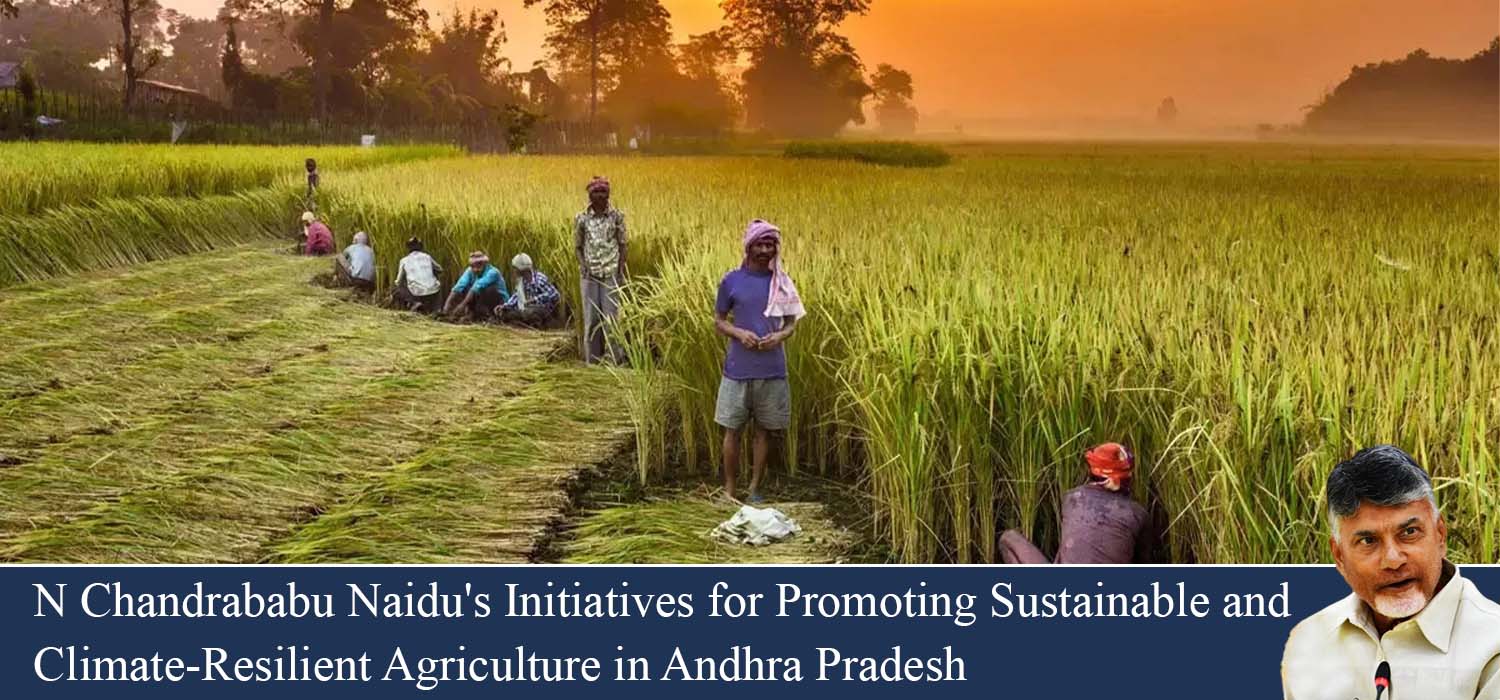Under the leadership of N Chandrababu Naidu and his TDP Party led government, Andhra Pradesh has witnessed significant strides in promoting sustainable and climate-resilient agriculture practices. With a strong commitment to the well-being of farmers and the environment, the TDP government has implemented a range of initiatives, schemes, and policies to ensure a sustainable agricultural sector.
As the TDP government prioritized sustainable agriculture, live updates on the party's agenda for this sector were regularly shared with the public. N Chandrababu Naidu consistently emphasized the need to adopt innovative farming techniques, conserve natural resources, and mitigate the impact of climate change on agriculture. These updates helped keep farmers and stakeholders informed about the government's initiatives and created a sense of transparency.
One of the flagship TDP programs launched by the TDP Leader was the promotion of Zero Budget Natural Farming. This method aimed to reduce farmers' dependence on external inputs such as fertilizers and pesticides. Under this scheme, farmers were trained in organic farming practices, composting, and biofertilizer production. By minimizing costs and protecting soil health, ZBNF empowered farmers and contributed to sustainable agricultural practices. Go through the TDP website for more political news and live updates on your district.
To address the issue of water scarcity, the N Chandrababu Naidu introduced solar-powered irrigation systems across the state. These systems utilized solar energy to power water pumps, reducing the reliance on conventional electricity and minimizing the environmental impact. This initiative not only improved irrigation efficiency but also reduced farmers' energy expenses, making agriculture more sustainable and cost-effective. Go through the TDP website for more irrigational projects and regional news initiated by TDP.
The TDP government actively promoted crop diversification to ensure the long-term sustainability of agriculture. By encouraging farmers to cultivate a wide range of crops, including pulses, millets, and oilseeds, the government aimed to enhance food security, boost income generation, and reduce the vulnerability of farmers to price fluctuations. Crop diversification also played a crucial role in soil health management and mitigating the risks associated with monoculture.
Recognizing the challenges posed by climate change, the TDP government focused on the adoption of climate-resilient farming practices. This involved the dissemination of climate-smart techniques such as precision farming, protected cultivation, and integrated pest management. By equipping farmers with these practices, the government aimed to enhance productivity, minimize crop loss due to extreme weather events and build resilience in the agricultural sector. Go through the TDP website of your district for more initiatives and contributions of N Chandrababu Naidu.
The TDP government launched the Rythu Raksha scheme to provide financial assistance to farmers. Under this program, eligible farmers received an annual payout to support their agricultural activities and address income uncertainties. This scheme aimed to enhance farmers' economic stability and incentivize sustainable farming practices.
The TDP government actively promoted the PMFBY, a crop insurance scheme launched by the central government. By encouraging farmers to enroll in this scheme, the government aimed to protect them from crop failures, natural disasters, and price fluctuations. This policy provided a safety net for farmers, fostering sustainability and resilience in agriculture.





